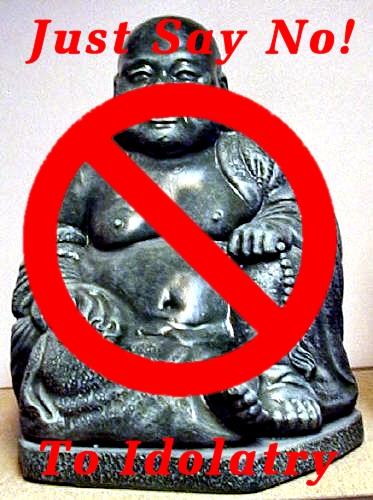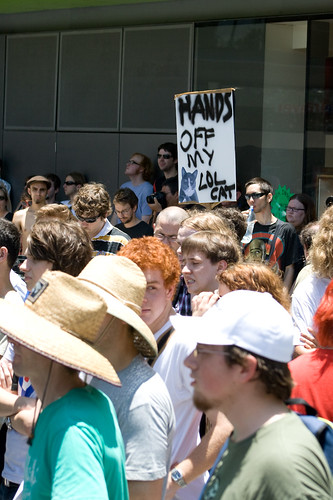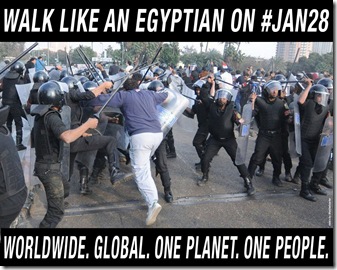I’ve been involved with the online organising for Occupy Brisbane. Yesterday I noticed a post on Tumblr getting some attention from people I knew, people who are definitely not rich.
This is my response:
The original post is in bold, my response is in plain text.
At the moment in the US there is a collection of affiliated protests, centred on New York city. As with all “grass roots” protest movements, some of the protesters are unemployed or students who enjoy shows of unity and demands for change as a recreational sport.
Really? How do you know this?
Some of them are people who have found themselves with a low quality of life for no other reason than they have declined to work to improve it. They see that other people have a high quality of life and are demanding the same.
Really? How do you know this?
These groups of people are the minority. The majority of protesters, and the theme of the protest, is the idea of a (figurative) 99% of America who may or may not be well educated, but work hard, and still have a quality of life that compares better to developing countries than the United States. Some are drowning in student debts that are all but impossible to service. Some have been through processes of being laid off or having pay reductions in corporate cost cutting exercises and earn only as much or in many cases significantly less than they did several years ago – while costs continue to inflate. Many or most have no access to healthcare were they to require it – not being able to afford access to the user-pays American system.
The 99% are real, and it’s frightening. Young families with $10 left after essentials who are an illness away from bankruptcy, professionals with undergraduate degrees in corporate roles who are choosing between making student loan payments and eating dinner. One to two generations of Americans who are fed up to hell with an economy that came about largely because of a finance industry which managed to somehow overthrow the rules of capitalism; an industry that instead of winning or losing based on market supply and demand, took home its profits, and managed to get its debts paid by taxpayers. The entirety of Wall St is like Nick Leeson, the derivatives trader who worked for Barings making a tonne of highly profitable transactional trades, all the while putting the debts from the disastrous failed trades into an “error account” (numbered 88888) until they totalled $1.4 billion and were discovered. Barings was sold to ING for £1.00
Australia is different. Australia is a country with universal subsidised healthcare, subsidised tertiary education with an efficient and fair loans scheme which is paid at an acceptable rate only out of the money you earn, near universal employment and an expansive welfare system that can sustain the unemployed for years if that’s what the situation requires (unlike the US’ time-limited unemployment benefits scheme).
This is true, in itself. But what about those “Young families with $10 left after essentials who are an illness away from bankruptcy”? You don’t think we have those in Australia? I’ve lived most of my life an illness away from homelessness. I’ve waited for over four hours to get treated in a hospital emergency room because local doctors don’t take on any more patients because that healthcare system isn’t subsidised enough. As for “near-universal employment”, there’s a trick the government do, which is to regard anyone working for even one hour a week as employed. The underemployment rate (measuring the number of people who want more hours but aren’t getting them) was around 7% last year in Australia. And what if the money you are earning is at a job that eats away at your self-respect and dignity every day you do it?
Those are just the sorts of things that have affected me personally, that I can talk about with experience. I wonder how many other people, even in a fairly well-off country like Australia, are feeling ground down by these sorts of problems – or other problems that I’m lucky enough to miss out on.
Our banks are strong and to a large extent highly ethical. The lack of speculative, nonsensical finance products bought and sold in Australia by our highly liquid and well regulated financial institutions, means our economy didn’t only not plunge into recession in the GFC, we largely didn’t even feel its effects beyond those from exposure to overseas markets. Our average wage is about 150% of the US’, our minimum wage is $15.51 to the $8.00 in Los Angeles. It’s not perfect but when an Australian retires, they will absolutely have some retirement benefits due to a pension system and the superannuation guarantee.
Australians NOW struggle if they have to rely on just the pension. I don’t see that situation easing up much in the next twenty years. And what happens to people who are due to retire on their superannuation just after a stock market crash? Their plans might have to be put on the shelf, and they might have to work a lot longer than they hoped. Those people are feeling the results of the recent financial crisis now. I wonder how they feel about the fairness of the retirement system.
We have our problems. We have people who are mentally ill who aren’t getting help.
I’ve been one of those people. Have you? If you have, then I say I have too and my opinion on the Occupy protests is just as valid as yours. And if you have not, it’s not your place to use an illness I’ve had to tell people they shouldn’t get involved with something I agree with.
We have indigenous communities that just aren’t thriving.We have a nation gripped with an absurd fascination with people who crawl onto our beaches having escaped whatever hasn’t been bombed into a vapour in their home country. We have a polarised national debate about the global environment and how to minimise our effect on it, and that debate is birthing a sociological crisis in the way groups of Australians interact with each other, their government, and the media.
A group of people coming together because they are angry with the way things is one of the best chances we’ve had in years to start talking about these problems, and many others. Telling people not to get involved in Occupy protests because of these problems is ridiculous. We need to work out how to unite many different areas where people are fighting for their rights – and if people at the Occupy protests are politically mature enough to, for instance, deal respectfully with Aboriginal people, we have the chances to form some new alliances.
I also think that most of the big problems of the world today are closely linked to the way our economy is set up. If we start digging closely into any issue, we come up against one similar problem each time – a government not prepared to raise the taxes needed. And that’s because governments have been answering to the 1% – and not even pretending to work for ordinary people – for the last three decades and more. The 1% don’t want more of “their” money going on taxes, so it doesn’t.
These problems don’t get fixed with the solutions the Americans are demanding. “Occupying” Sydney or Melbourne and demanding the “end of corporate greed” is putting a bandaid on your forehead to deal with a headache. With the lack of relevancy the “occupy” movement has in Australia, the only people left are the unhygienic, mouth breathing Socialist Alliance, Citizen’s Electoral Council and other limpet organisations that try to inseminate their agenda into any group of people larger than about twelve individuals. You want to occupy something in Australia?
Firstly, using the “those people I disagree with are dirty” argument is childish and hateful. Wrong ideas need to be defeated in debate, not called “dirty”.
Secondly – is this actual analysis? Or just name-calling using the names of two groups you vaguely know you dislike? Do you know for a fact that the Socialist Alliance and Citizens Electoral Council are the main groups dominating the Occupy Sydney protest? I saw that a Socialist Alternative (not Alliance) rep was scheduled to speak on Channel 7’s Sunrise on Monday morning. Do you know the difference between the two groups? If not, I won’t rely on your assessment of who is dominating Sydney’s protest.
Occupy your local member’s office and discuss how the mentally ill can get the help they need.
Occupy a soup kitchen and use your labour to give the homeless that we do have, a hot nutritious meal.
Occupy a dinner party and explain the scope and substance of our “refugee crisis” to your friends in clear, respectful language.
Occupy a talkback radio station for 5 minutes on the phone, and ask the shock jock why it’s a bad thing for the government to make polluting more expensive for companies.
The Occupations can and should discuss all these questions:
Why won’t the government spend enough money on mental health services? I know of one person at Occupy Sydney who is losing out big-time because of cuts to mental health services, and it’s a big motivation for him to get involved.
Why is housing so expensive that more and more people are homeless or very close to it? Why are meal centres mostly very horrible places to eat at? (I’ve had my share of meals in them)
Why is our society so inward-looking and fearful that a few thousand “illegal” boat-arrivals are seen as a major existential threat?
Will the carbon price/tax/whatever help to create a massive renewable energy industry in Australia? Or are there other ways to do it?
And one final question that’s worth thinking about:
We’ve suffered so many defeats at the hands of the 1% in the last few decades. When people start to come together because they want to see change, they are scoffed at by people who have nothing to lose and everything to gain from successful Occupations. How on earth do we change that?
















Recent Comments